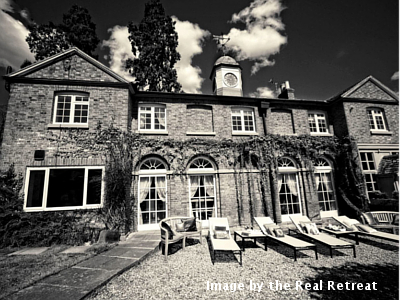Hackathons with a difference: writing collaborative papers
Posted on 5 August 2014
Hackathons with a difference: writing collaborative papers
 By Derek Groen, Fellow and Research Assistant, Centre for Computational Science, University College London
By Derek Groen, Fellow and Research Assistant, Centre for Computational Science, University College London
This September I will host the first Paper Hackathon event in Flore, Northamptonshire, with help from Joanna Lewis and support from both the Software Sustainability Institute and 2020 Science.
To my knowledge, this is the first time anyone has organised a Paper Hackathon, although amusingly there has been a Hackathon focused on the IPhone Papers app. With that in mind, let me share how I thought of this, and why I think it is a good idea.
The idea
2013 was quite an eventful year for me. I became a Fellow of the Software Sustainability Institute, but I also became an Associate Fellow of the 2020 Science project. As such, I familiarised myself with two groups and their differing backgrounds, but with an unexpectedly good match in terms of aims and objectives.
Now I'm sure you're familiar with the Institute, so let me briefly explain what 2020 Science is about. As an EPSRC funded cohort project for early career researchers in computational science and natural science, it seeks to establish multi-disciplinary scientific collaborations. These collaborations are sometimes small, with two or three Fellows working on a specific topic in natural sciences, and other times quite large, with a whole group of Fellows working on a paper (see for example our PLOS Comp Bio publication).
Within 2020 Science, the fellows are explicitly encouraged to work with one another, and they've written many collaborative papers as a result of that. However, from my own experience, I felt that scientific collaborations are often very tricky to establish for early career researchers. Usually, people like us are funded by projects with predetermined scientific objectives, as well as regular obligations in the form of teaching, writing reports or supervising students within the project. It can be quite tricky to even meet other researchers for scientific discussions, let alone free up enough time to work on a collaborative project with the complete dedication needed to write good papers.
In the programming community, where dedication to one’s work is as crucial as it is in science, people frequently organise Hackathons to make rapid progress on specific projects. Given the clear parallels between programming and paper-writing, I thought why not organise a Hackathon for the latter too?
What's in it for you?
Put simply, you get to co-author a scientific paper in a matter of days, - but there is more to it than that. Paper Hackathon projects are generally interdisciplinary collaborations between early career scientists, and so you get the chance to show your academic independence, generating research ideas and conducting science without direct input from your line manager.
These ad-hoc collaborative research efforts are a great way to develop your personal academic style, and can provide supporting evidence of your personal independence as an academic. Aside from the paper, the hackathon is also a great opportunity to meet like-minded early career researchers, which allows you to bounce off ideas for future papers, discuss academic careers, or just have some fun!
Last but not least, you'll find yourself in Flore, Northampton, which is particularly well-suited for releasing work-related tension. So if the going does get tough during the event, you could always take a short splash in the swimming pool, or enjoy a bit of autumn sun in the garden.
Papers "versus" programs
When working out the Paper Hackathon idea, two things became clear to me straight away. Firstly, you need to meet a certain level of quality, originality and rigour before your work becomes a scientific paper. Secondly, not all science projects lend themselves to going from start to finish in a two day period. To help address these points, I decided that a paper hackathon needs to be set up slightly differently, by listing suitable science projects up front (which eliminates time and energy spent to think up projects during the event) and by assigning one person to take charge of each project.
Having a project leader in advance makes it much easier to do some preparational work, to guide the process of forming a scientific team, and to ensure that the time spent during the Paper Hackathon is spent more on science and less on the organisational activities around it. Finally, the person taking charge of a project will likely feel a strong reason to push the project towards the finish line during the Hackathon, and help put the finishing touches on the papers afterwards.
The next step: organise your own Paper Hackathon
Once the first Hackathon has taken place I will be able to advise others on how to run one themselves. In fact, we will be reporting online throughout the Hackathon, and I will be sure to share our experiences and findings afterwards.

